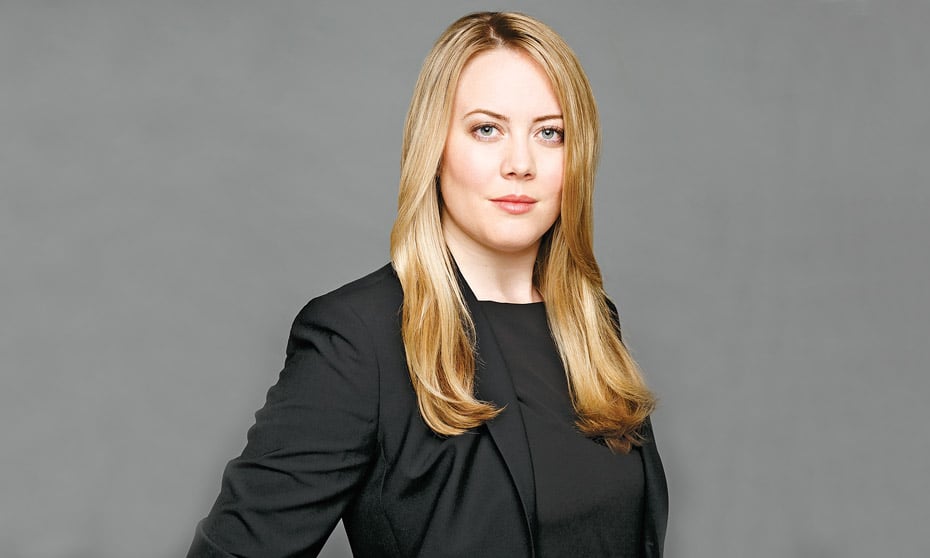
Offering to junior in a certain niche can build your network

When it comes to criminal law, “referrals are everything,” says Lisa Jørgensen, who practises at Cooper Jørgensen in the Toronto area.
“You will have some repeat clients but that’s never the goal. Civil litigators or people in other jurisdictions are a huge driver of my practice, or other criminal lawyers . . . . that’s 90 per cent of my clients, the other 10 per cent are people find your name on the directory or know a client,” she says.\
Learn more about the benefits of practicing criminal law in Canada, including some of its disadvantages and how to overcome them.
Jørgensen makes referrals out to non-criminal lawyers — for example, if a criminal charge may impact someone’s ability to stay in Canada, she may refer the client to an immigration lawyer. Or, she says, sometimes an incident can result in both criminal charges and a civil lawsuit, in which case she will refer out to a civil litigator.
She also says she makes referrals to criminal lawyers in cases that involve co-accused or other conflicts, or for witnesses that may need their own counsel to help them through the process, she says. Jørgensen says that she typically refers out files to another criminal lawyer when she loses a case but there may be grounds for an appeal.
“I think a second set of eyes is better [on appeal],” she says.
Jill Presser, principal at Presser Barristers in Toronto, on the other hand, says she’s often on the receiving end of referrals for appeals. That’s one of the niches she’s developed over time, alongside her focus on issues such as search and seizure, digital privacy and mental health.
“There are certain trial lawyers with whom I have long-standing relationships — I’ve known them for many years, I respect their work, we have open lines of communication, presumably they respect my work — and we’ll refer work back and forth to each other. If someone calls me upon their arrest, and I’m not going to take on their trial — because I don’t do a lot of trial work anymore — I will refer them to a trial lawyers who I like to refer to. And when they have a client who gets convicted and the think there is a good ground of appeal, they will refer the appeal back to me,” she says. “I don’t think there’s anything wrong with that because none of us would refer to each other if we didn’t think the other did nice work for the client. In terms of things I look for when I refer a client out: ‘Is this a good lawyer? Is this somebody who will do excellent work? Is this the kind of person who has relevant experience or expertise?’”
Presser says when making a referral, she looks at lawyers’ track records on similar cases — whether it be their scientific expertise on DNA evidence, their experience defending big drug cases or gang violence charges, or doing many cases in drinking and driving. There are also intangible aspects — like finding a lawyer with the right “bedside manner” for a client, as well as a lawyer who will accept legal aid or fall within the right price point for the client.
Jørgensen says she will speak to the lawyers she plans to make a referral to, ensuring the recipient offers a price point in the potential client’s range. She’ll typically give the client two or three names of lawyers within their budget, says Jørgensen.
“When I refer anyone to get additional legal advice, I’m putting my reputation on the line. I want to make sure they will be excellent at their job. A big piece is: ‘Will they manage client expectations?’ The legal outcome can be positive but a negative experience is not a good referral,” says Jørgensen. “I do get feedback from my clients about what it was like working with that other lawyer. Information about that will end up back at the referring lawyer. That will affect my decision in the future when referring to that person. So, it’s also about excelling in the retainer you obtain.”
Jørgensen says that she meets lawyers for her referral network through groups like the Criminal Lawyers' Association and the Advocates' Society, and sometimes she asks for additional recommendations from more senior lawyers.
“Get out there and meet people at in-person events. Networking is an important part of the job, as much as people may hate it. In criminal law, one thing [junior lawyers] can do is contact a whole bunch of more senior lawyers and offer to do ghostwriting, factums, motions,” she says. “Having someone willing to step in and do some writing, is a great way to build a professional relationship. Handshaking is only half of the battle — they need to see your work.”
Presser says once you’ve reached out lawyer to shadow them or work on a file at the legal aid junior rate, it’s important to work hard and impress them to earn repeat business. Academic journals, the list servs and publications for the CLA, and even blogs are also ways to get the word out, say Presser and Jørgensen. While some lawyers might be shy to ask for work, Presser says not to get discouraged: She’s gone six months without hearing from someone only to have a referral land on her desk.
“Another way is to do a ton of self-study: go to the library, read every article in the subject area, read every case and every textbook and go to continuing professional development programs in the subject area. When you meet people who are practising in the area, tell them you are looking for work in the area and are available,” she says. “Or another way to do it is write . . . . there are communities of lawyers out in cyberspace in every practice areas.”